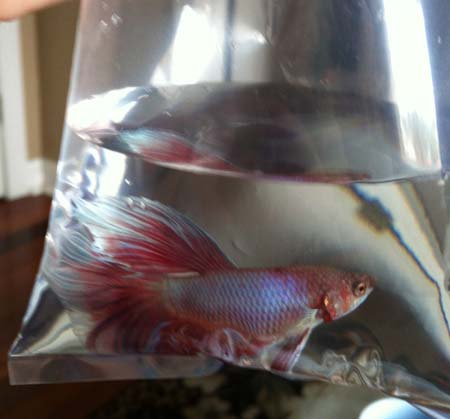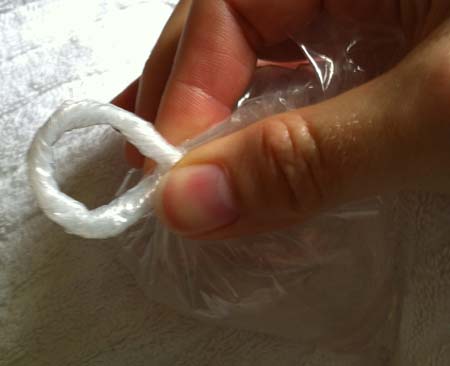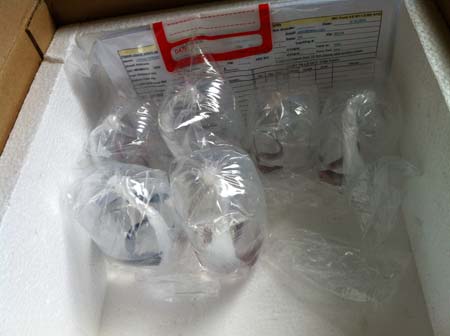Entry Forms and Shipping
The entry forms for Convention are the standard IBC Show Entry Forms.
For Convention, people are allowed to enter up to 60 fish entries (70 total
fish including pairs). (There is no additional limit for arts and crafts
entries.)
A snapshot of an example form using the "help" for classes is provided
for guidance, and then also there's a short video by Gianne Souza on how to
both pick out the fish and fill out the form.
Due to the number of fish at Convention, and the extra number of days,
there are no auction only fish to be sold at the auction on Sunday.
Instead, fish can be put for direct sale or for silent auction that will be
placed in the Swap Shop room and will start on Thursday and run through
Saturday night. See the Swap Shop
under Schedule for more information.
Where to send Fish
Shipped fish MUST arrive by Thursday noon, June 26. Please plan your
shipping in time to get them there. We bench Wednesday and Thursday, with walk-ins
on Thursday, and judge on Friday. Please pre-register all your fish!
Email your entry form to
jeremy.n.waugh@gmail.com by Tuesday, June 24.
Send fish to:
Jeremy Waugh
3826 Larkspur Dr
Concord, CA 94519
For more information on entries, including details of Show Chair contact
information, special notes, and unsold items, see the
CBS IBC Convention Entry Information file
[pdf]
Art Entries
Art Entries use the same entry form, but they should be shipped
SEPARATELY from the fish. Send Art Entries directly to the hotel.
Embassy Suites Santa Clara - Silicon Valley
Attn: IBC/CBS Betta Show - ENTRY
2885 Lakeside Drive
Santa Clara, California USA 95054
And let us know that they're coming! (There will be many other
packages coming to the Embassy, including awards, so let us know about the
arts and crafts so we can make sure we get them into the show and on
display!)
Shipping Fish to a Show
There's a lot of details going into how to send a fish to a show.
Here are covered some of the very basics, and there's also a video from Amy
Beccera on how to bag the fish. Everything here are only basics - ask
on the BetterBettas list or the Facebook if you have any questions!
Basic Shipping Instructions
- You will need long plastic fish bags from a pet shop, not from the
grocery store. Two are required for each betta going to a show, and 2 for
each betta at the end for either auctioning or to be shipped back to you.
.You will also need the following items:
- An IBC Entry Form [xls]
- A Styrofoam box inside a cardboard box used for shipping fish. This
can be obtained at local pet stores.
- A waterproof marker or permanent label for marking each bag.
- The Judging Standards or class list (page 2 of the entry form) for
classifying your bettas; and
- An extra bag to hold your entry fees, forms, return postage, or
other items you do not want to get wet.
.
- Double bag each betta and use enough water to adequately cover the
fish. Remember that water adds weight and increases the postage and the
air held in the bag is almost more important to the betta. Knot the first
bag, leaving 2/3 air. Then put that bag, with the knot end down, into the
second bag. This helps to guard against leaking.
.
- Find the classification sheet or class list and classify each fish
with the appropriate number. Record the classes on the fish bag and also on
the entry form. Also record the entry form item number on the bag. If you
are in doubt as to how to classify a particular fish, mark the entry (both
places) with “class help”. The judges are on your side and understand that
some fish can pose a classification problem for the novice and experienced
hobbyist alike.
Use the remarks area for auction labels and also it's good for both show
people and yourself to try and match up your fish when they get shipped
around. Even if it's a 'help' class fish, if it's got "blue hm' on the
remarks... the people unpacking can go "oh yeah, that one! yep, he's here."
.
- Decide which bettas you might like to auction. Auction proceeds can
help pay the expenses of showing. Remember that you have no way of knowing
though, whether the fish may take a ribbon and you may be auctioning off a
winner. Mark your entry sheet and the corresponding bag to make sure that
the right fish is being auctioned.
.
- Put the bags in the Styrofoam box along with any additional cushioning
material. You might also put each bagged fish into a brown lunch bag to keep
them isolated and insulated.
.
- Weigh the box. Call the Post Office and find out the return postage
for Priority Mail and Express Mail.
.
- Put your entry form, entry fees, and return postage in a dry fish bag.
Seal the box with strapping tape. NOTE: Do NOT label the box “Live Fish” on
the outside – this can cause issues with certain shipping companies.
.
- Mail your bettas Priority Mail (usually 2-3 days) or Express Mail
(usually overnight). It keeps the box from sitting in cold rooms for long
periods of time.
.
- Timing the mail so the box should arrive the day before fish are
supposed to be benched. For a normal show where benching takes place
Friday, mail on Wednesday morning (Express Mail) or Tuesday morning
(Priority Mail). For Convention where benching takes place Wed and
Thurs, mail Express on Mon or Tues and Priority on Sat (Mon absolute latest,
but you're pushing it on priority...).
.
- Cross your fingers and wait for the results!
Note: If you cannot find some of the items needed to ship your fish, IBC
sells plastic bags, heat packs (for shipping in the fall or spring),
shipping labels, and styro boxes. Check the latest issue of FLARE! or the
IBC web site for prices and purchase information.
Pictorial Highlights:
Make sure the water covers the fish! Both when the bag is upright
and when it's on it's side. Longer-finned fish and crowntails will
need more water (for buffering) than shortfins and females. No matter
how much water you put in, make sure there's at LEAST as much air, and
preferably more. The standard ratio is 2/3 air to 1/3 water. Due to
box shipping size, sometimes people will put less than this in, but make
very very sure there's always at least as much air as water. The fish
are traveling for a long time, and they'll die if there's too much water and
not enough air. (Yes, bettas are different - that's why we love them.)

Tie the bag TIGHT!!! The reason we use the extra long bags is
mostly so we can get a really really good knot on the bags. Twist that
bag around until it's tighter than heck then KNOT! Pull that knot
tight! Use your teeth if you have to, but make absolutely sure that
the knots are tight and water won't leak. (Hint - make the inner
bag just less than full with water/air so the second bag can go over it
easier.)

Pack the bags into the box, with the inner bag tie up (outer bag tie
down). Have your entry form and other paperwork in the box in a ziplock plastic bag in case of water leaks. When all the bags are in
the box, then put additional shipping material such as styro peanuts,
airbags, crunched up newspaper, etc, in to make sure the fish are buffered
during shipping and won't be thrown around inside it.



